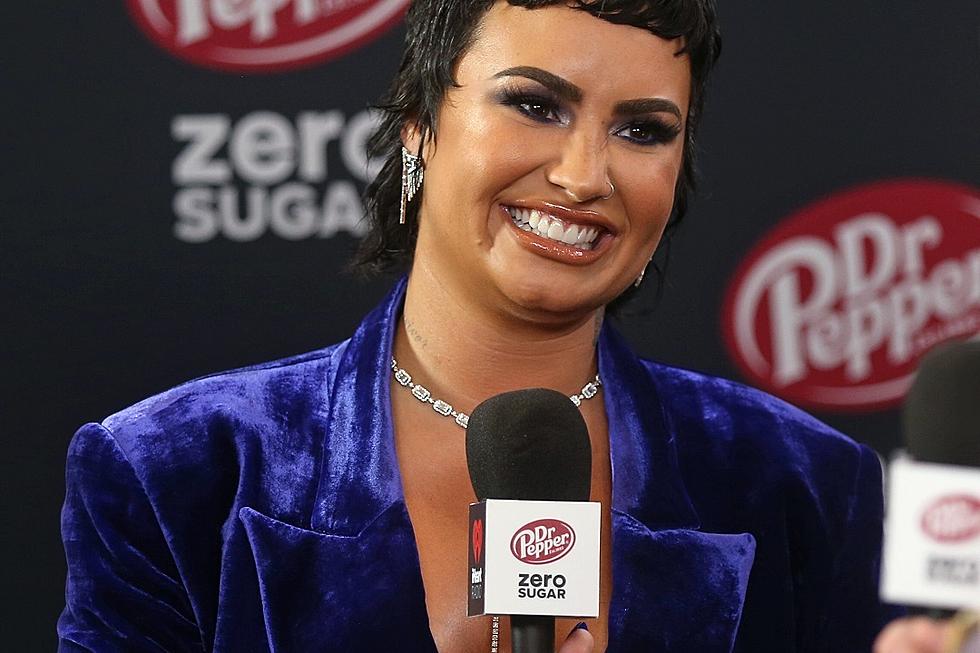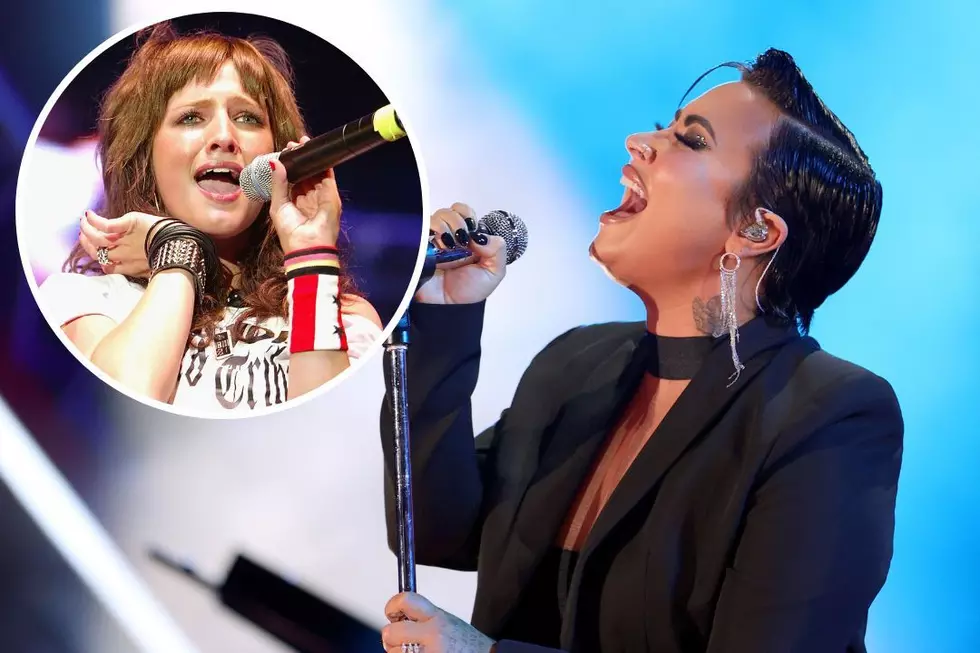
Demi Lovato Inadvertently Promotes Sugar-Free Soda Just Weeks After Froyo Shop Criticism
Demi Lovato accidentally promoted sugar-free soda after recently sparking outrage for criticizing a frozen yogurt shop for offering sugar-free options.
The "Sorry Not Sorry" singer walked the red carpet at the iHeartRadio Music Awards on May 27. One of the sponsors for the awards show was Dr. Pepper Zero Sugar, as promoted on official microphones and the step and repeat backdrop.
At one point, Lovato held a microphone featuring the Dr. Pepper Zero Sugar logo for an interview, and they even posed for photos in front of signage.
Naturally, social media users had a field day considering the irony behind Lovato posing with the logo for a sugar-free product after vocally criticizing another business for their own sugar-free offerings. Many were not happy that the pop star launched a social media campaign to criticize a family-owned business for carrying sugar-free cookies, only to appear at an event that promotes a similar product on a corporate level.
“Demi was doing a promotional stop for the awards show as a good partner to iHeart," Lovato's representative told Page Six. “They’ve apologized for comments made weeks ago and have moved on to focus on their cause work in the area of eating disorder awareness and Pride.”
And although the majority of the social media scrutiny has been negative, some fans also pointed out that Dr. Pepper seemingly hasn't promoted itself as a diet product.
In April, Lovato criticized Los Angeles-based frozen yogurt shop The Bigg Chill on social media for calling their sugar-free cookies "diet" options. Lovato said that seeing the "diet" label in the store was "triggering and awful."
Amid the controversy, the establishment explained that they want to cater to everybody, including customers who are diabetic, vegan or gluten-free. Lovato responded to their statement and said, "Don't make excuses, just do better."
The feud concluded after Lovato released an apology video on April 20. In the video, they claimed that it wasn't clear the products were meant to be inclusive for people with specific health needs, and they admitted they jumped to conclusions.
25 Times Celebrities Clapped Back at Fans
More From Mix 106







